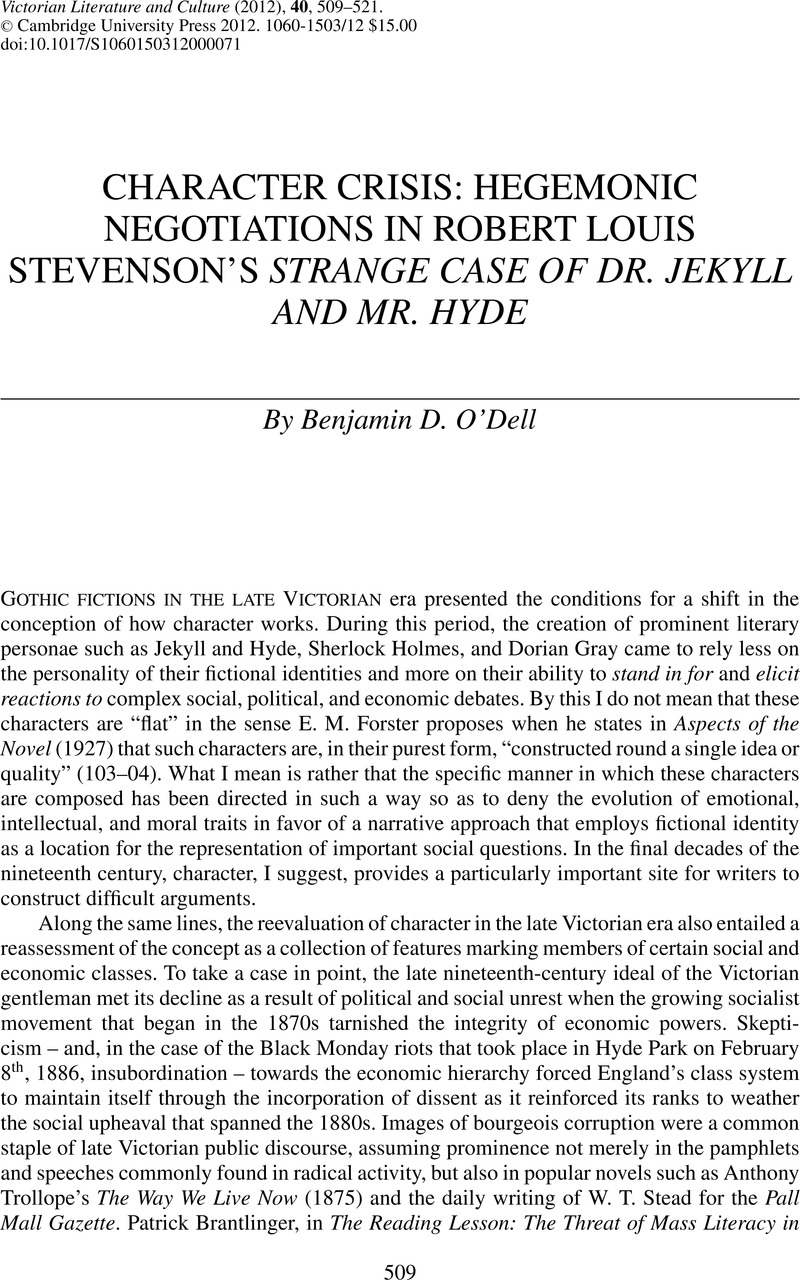Crossref Citations
This article has been cited by the following publications. This list is generated based on data provided by Crossref.
Oulton, Carolyn
2018.
‘Licking the Chops of Memory’: Plotting the Social Sins of Jekyll and Hyde.
Humanities,
Vol. 7,
Issue. 2,
p.
31.
McCrystal, Erica
2018.
Chaos, Order, and Liminality: The Urban Gothic of Fin-de-Siècle London and Gotham City.
Gothic Studies,
Vol. 20,
Issue. 1-2,
p.
311.
Jonsson, Emelie
2021.
The Early Evolutionary Imagination.
p.
101.
Krawczyk-Łaskarzewska, Anna
2021.
Landscapes and Townscapes.
Esmailzadeh, Saeedeh
Beyad, Maryam Soltan
and
Salami, Ali
2024.
Violating positivist precepts: a Comtean look into
The Strange Case of Dr. Jekyll and Mr. Hyde
.
Nineteenth-Century Contexts,
Vol. 46,
Issue. 2,
p.
293.



